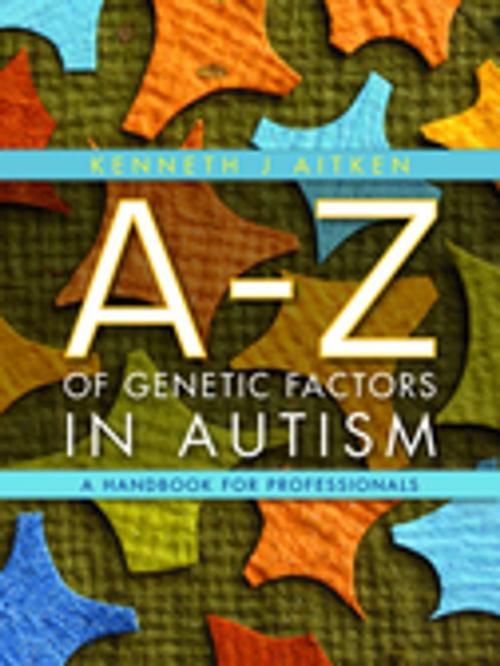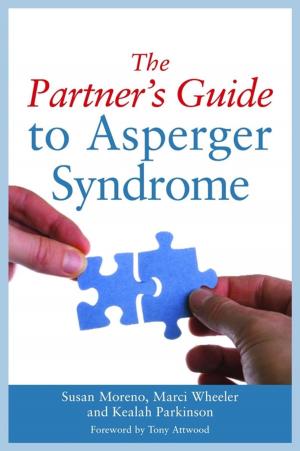An A-Z of Genetic Factors in Autism
A Handbook for Professionals
Nonfiction, Health & Well Being, Psychology, Mental Health, Medical, Health| Author: | Kenneth Aitken | ISBN: | 9780857004901 |
| Publisher: | Jessica Kingsley Publishers | Publication: | April 15, 2011 |
| Imprint: | Jessica Kingsley Publishers | Language: | English |
| Author: | Kenneth Aitken |
| ISBN: | 9780857004901 |
| Publisher: | Jessica Kingsley Publishers |
| Publication: | April 15, 2011 |
| Imprint: | Jessica Kingsley Publishers |
| Language: | English |
Our understanding of the biological bases to the autistic spectrum disorders (ASDs) is advancing rapidly. Over 80 genetic conditions have now been reported in people who have also been diagnosed with ASDs. Many of these conditions have specific implications for the presenting phenotype and for treatment, management, and intervention. If the basis to the presenting behavioural phenotype is not identified, this can result in a sub-optimal level of care, complications, or even permanent damage.
Kenneth J. Aitken shows that the notion of a single condition known as 'autism' is no longer tenable, and challenges current trends in the diagnosis and management of these behaviours as a homogenous group by drawing on recent research into brain function, genetics, epidemiology and neurology. This volume explains the biology and genetics of ASD, and provides clinicians and researchers with a comprehensive summary of each genetic factor including the research that links it to ASD, diagnosis and treatment issues, and related animal models, as well as detailing relevant professional organisations and avenues for further research.
An A-Z of Genetic Factors in Autism is an essential resource for a wide range of researchers, clinical professionals and students interested in autism spectrum disorders, including clinical and educational psychologists, dieticians, psychiatrists, and neurologists.
Our understanding of the biological bases to the autistic spectrum disorders (ASDs) is advancing rapidly. Over 80 genetic conditions have now been reported in people who have also been diagnosed with ASDs. Many of these conditions have specific implications for the presenting phenotype and for treatment, management, and intervention. If the basis to the presenting behavioural phenotype is not identified, this can result in a sub-optimal level of care, complications, or even permanent damage.
Kenneth J. Aitken shows that the notion of a single condition known as 'autism' is no longer tenable, and challenges current trends in the diagnosis and management of these behaviours as a homogenous group by drawing on recent research into brain function, genetics, epidemiology and neurology. This volume explains the biology and genetics of ASD, and provides clinicians and researchers with a comprehensive summary of each genetic factor including the research that links it to ASD, diagnosis and treatment issues, and related animal models, as well as detailing relevant professional organisations and avenues for further research.
An A-Z of Genetic Factors in Autism is an essential resource for a wide range of researchers, clinical professionals and students interested in autism spectrum disorders, including clinical and educational psychologists, dieticians, psychiatrists, and neurologists.















